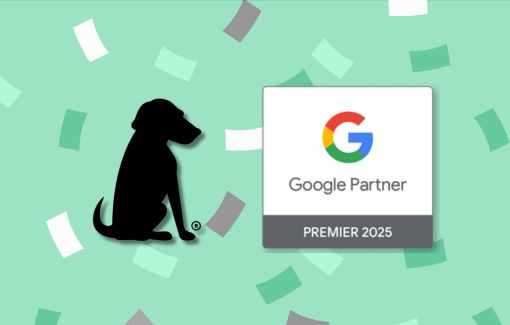
Image created using generative AI
The idea of marketing yourself may not sound like a skill that most people need to master unless they plan to start a new business or find themselves trending on Instagram. However, nowadays marketing yourself is very important for everyone to learn how to do and is a skill that is worth mastering. Whether you are an entrepreneur, run your own small business or are even just an employee at a local business, knowing how to market yourself is very important to your success. Best part? It’s completely free to start taking the steps necessary to market yourself. Here are 10 effective ways to market yourself successfully.
1. What do you have to offer?
The first step to being able to effectively market yourself is to figure out what you have to offer. It’s important to identify your personal niche and unique sales proposition (USP). It is also a good idea that whatever you plan to do or offer is something that you are passionate about. If you are passionate about something then it will make everything far more fun to do and much less burdensome. I would advise that once you pick your niche that it is a good idea to try and keep your focus on that, at least to start. Many times people make the mistake of branching out into other endeavors right away, and that makes marketing yourself even more difficult. Once your name and brand is fully established in a particular market or niche then you can begin to test the waters and branch out to other things, but never lose sight of your target market.
2. Set goals
The first step to being able to effectively market yourself is to set reasonable and achievable goals for yourself. Before starting it is important to identify for yourself what you are trying to achieve by marketing yourself. Are you hoping to increase your social media presence? Are you trying to generate buzz and awareness for your small business? Whatever it is, it is very important to know what you are trying to accomplish by marketing yourself.
Some goals to consider:
- Increasing brand awareness, getting your name out there and making it so people know who you are and your business.
- Building trust and rapport with your audience, creating and cultivating an audience or customer base that respects your brand or business and trusts the product or service being provided.
- Building your reputation with search engines—nowadays people look for everything on search engine sites like Google, Bing, etc. It is important to grow your reputation and brand to a point where, when people look for your product or service, it actually shows up on search engine sites.
These are just a few of the many goals that could potentially be worth setting for yourself before beginning the process of marketing yourself. Finally, an important aspect to setting goals is to be specific and measurable. If your goal is to increase brand awareness on social media, set a numeric goal such as an increase in followers or engagement on the platform of your choice.
3. Choose your target audience and focus on it
It’s important to consider and identify the people who would be interested in your content. A few things to consider:
- What are the demographics of your target audience?
Demographics include age group, gender, income level, and location. For example, you may identify that your product or service most appeals to married, college-educated males aged 30 to 35 with an annual income level over $50,000.
- What are the interests of your target demographic?
For example, if your content is marketing and advertising blog articles, then you will likely be looking for people interested in marketing.
- Where are they browsing online?
If your target audience is browsing a particular site, often it is probably a good idea to market yourself on that site. For example, if you are offering home repair services, it is likely in your best interest to be listed on a site like HomeAdvisor.
- Where are they networking?
If your target demographic is attending certain webinars or business conferences, then you should go out of your way to attend them and take the opportunity to put your name out there with those people who are already interested and in your target audience.
Identifying your target audience will be a huge key to success for effectively marketing yourself, so definitely take some time and research this thoroughly and carefully.
4. Make a Website
It is important to have a web presence in this day and age. One way to help your web presence is to create a website for yourself. A great example of the importance of a website for your brand is celebrity chef Ana Quincoces. When starting her Skinny Latina line of sauces and marinades, Ana reached out to BlackDog Advertising to design a website for her product line and personal brand. Ana Q saw significant gains in traffic and sales from the branding and website redesign. Keep in mind your website should be a place that anyone can visit and immediately be able to learn who you are and what you do. Blogging within your website can be an effective way to share industry-specific information within your field.
5. Set up social media accounts
Another step in effectively marketing yourself is creating a social media presence for yourself by creating various social media accounts. There are a variety of social media sites out there, and each caters to various audiences:
- On Facebook, users can post comments, share photos, livestream, and watch videos. It’s a great site to reach a wide audience aged 30 and older.
- Instagram is a more visual median. It’s great for content such as photos, videos, livestreams, and it can be used to reach an audience that are aged 20 and older.
- X (formerly Twitter) is perfect for reaching an engaged and passionate audience with short messages (140 characters or less) known as “tweets.” Images and videos can also be shared on the platform.
- LinkedIn is a social media site that focuses on professional networking and career development. It’s ideal for reaching out to people in your specific work industry and field.
- TikTok is used for interacting with users through video. It’s a good site for showing off your work visually in a short video form. It’s an ideal site for targeting younger audiences of people. Most TikTok users are between the ages of 15 years old and 25 years old.
- YouTube is a video sharing website that makes it easy for users to watch online videos. It’s a great site to show off your work visually in longer video form to people of all age groups.
It’s usually a good idea to create social media pages for yourself on all the different platforms but not completely necessary. Based on your target audience and your business, it may be unnecessary to be on certain social media sites. It is important to do the necessary research to make an educated decision on what social media sites you want to focus on and put time and effort into developing content for. It is also important to link your social media accounts to your website.
One businessperson that frequently utilizes social media is CEO of Walmart, Doug McMillon. A quick skim through his various social media accounts and you will see that he frequently posts content, almost daily. He does a great job of putting his name and brand out there while also staying relevant social media-wise. He’s a great example of why setting up social media accounts for yourself is an important part of effectively marketing yourself.
6. Write a detailed bio
Part of marketing yourself effectively is communicating who you are to people in a clear and efficient manner. Something that will help people know who you are while visiting your website or browsing one of your social media pages is to create a biography section or page. The biography should be a detailed and in-depth description of yourself and your product, service, or content. This biography should be placed in an “about” section or page on your website and copied to the “bio” sections of your various social media pages and accounts. Some things that you may want to include in your bio:
- Accomplishments: Applicable certifications or awards you have would be great to list and give you and your bio some legitimacy.
- History: Background information on yourself, such as your childhood, education background or past jobs
- Professional affiliations: Industry groups you are a part of that relate to the content you are sharing.
- Hobbies: This is a section of your bio to share some more personal information about yourself.
- Goals: Where you see yourself in the future.
- Purpose: Detail why you do what you do. This is also a good place to talk about your content, product, or service.
This may seem like a minor step in effectively marketing yourself at first, but it is one of the most essential steps in this ongoing process. A good example of this is entrepreneur Marcus Lemonis. When visiting his website, visitors can easily find his bio and easily access, read, and learn about him and what he does.
7. Create insightful and engaging content
Use your website and social media pages as ways to communicate your thoughts and insights with your audience. Make sure that whatever you choose to share or create is insightful and engaging. Always strive to create valuable and useful information that is worth sharing, information that people will actually want to read and interact with. Creating content that is both insightful and engaging is an absolute must for marketing yourself. Doing this will go a long way into gaining the respect and admiration of your target audience. A good example of someone that creates engaging content for their website is Gary Vaynerchuk, Chairman of VaynerX. Visitors to his site are able to easily find and access the blog he has created. In the blog section of his website, he has a wide variety of content, numerous blog articles, videos, podcasts, etc., all of which get his audience interested and engaged.
8. Network with others in your industry
Networking with other people in your industry is a key step in effectively marketing yourself. It creates an opportunity to build your reputation and develop relationships with people in your industry. The most common form of networking is attending business conferences and speaking engagements. These tend to be a great way to get some face to face time with people that work in similar industries and/or are looking for the type of content and insights you provide. Interacting with people through social media sites like TikTok, Facebook, and Instagram is another great way to network from the comfort of your own home. Engaging with other people in your industry online or in person is important. Most areas of interest have a community of people. By attending conferences and engaging with that community online, you will become a part of that community as well. Once a rapport has been established with certain individuals, do not be afraid to ask them about potentially collaborating. It could end up being very beneficial for all parties involved. Even something as simple as guest blogging, writing content for someone else’s site, can go a long way in effectively marketing yourself.
9. Be active
Once you have grown and cultivated your audience, a key part of keeping it is being active and consistent. Posting content to your website and social media pages is a good way to keep your name on the minds of your audience, and it is a good way to attract new people to your brand. Interacting with people that talk about your brand or business is also a good way to create great content for yourself. Try to avoid long stretches of internet silence. The last thing a business wants is for their audience to not hear from them for a while and then end up forgetting about them. Creating a schedule can make it even easier for you to create and post content at certain dates and times.
10. Create a schedule
Final step for marketing yourself is to take all the above information and create a strategy and schedule for yourself. Figure out the necessary steps for your specific situation and plot out a plan to achieve your set of goals. Figure out what and how often you plan to create and post content for your site. We recommend creating a schedule to keep yourself accountable. Overall, writing out everything that you plan to do and giving yourself due dates and checkpoints to aim for is helpful for remaining focused and on time with all tasks.
At the end of the day, the only person who truly knows how to market you the best is you. We hope this step-by-step guide will help you begin the process of getting your name out there and creating more opportunities to market yourself. Good luck!








